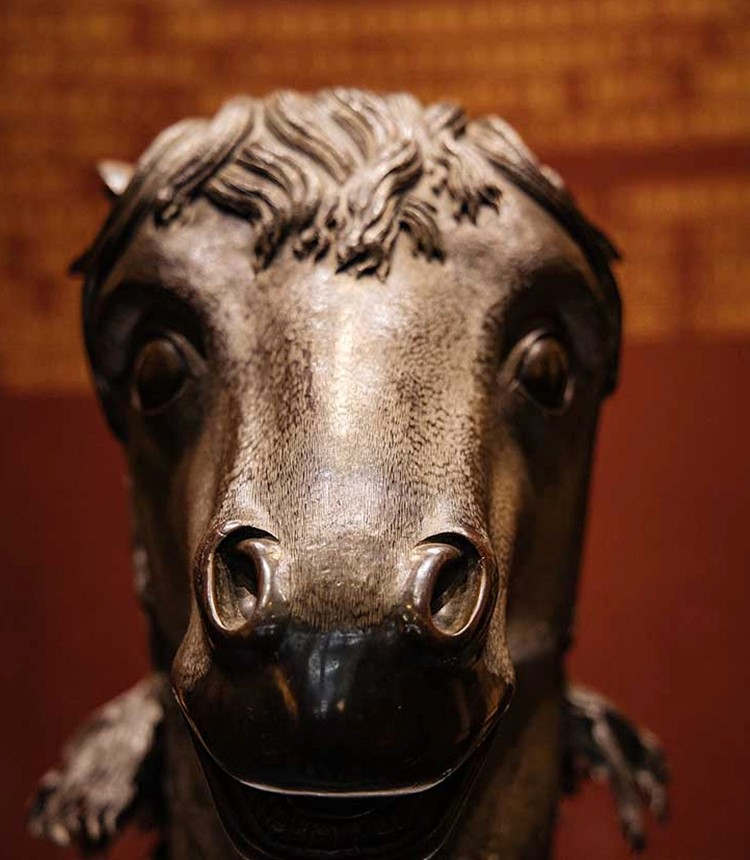
The returned bronze horse zodiac head is on display at the Old Summer Palace in Beijing on December 1, 2020. Photo: Li Hao/GT
The topic "livestreaming channels claiming to sell bronze horse's head from the Old Summer Palace for 9,999 yuan ($1,374.72)" has dominated the trending chart on China's Sina Weibo, stirring discussions about livestreaming channels targeting seniors with fake cultural artifacts.
Twelve Chinese zodiac animal statues were originally on display at the Old Summer Palace, or Yuanmingyuan, but were destroyed and the heads were stolen by British and French forces in 1860. Yet a netizen posted online that her father spent 9,999 yuan on a horse head statue, supposedly one of the 12 bronze zodiac heads from the Old Summer Palace, through a livestreaming sale, domestic media Lanjinger reported on Tuesday.
The topic had garnered more than 54.88 million views by Wednesday evening. For many, the blatant sale of fake Old Summer Palace zodiac heads on a livestreaming channel may be viewed as a very crude scam. It's a no brainer. Yet, these obviously fraudulent tactics still manage to extract significant sums of money from some elderly victims.
Many netizens have joined the discussions, noting that these scams, which use various sales pitches for fake antiques or even cultural artifacts and specifically target seniors, are not uncommon. Some seniors have been ensnared for years, placing over hundreds of orders through livestreaming channels, spending tens of thousands of yuan, and even borrowing money to make purchases.
The core logic driving viewers to place orders is the belief they are getting a bargain. Hosts of the livestreaming sessions use various narratives, including being pursued by foreign forces, family feuds, or lacking storage space for rebuilding museums, to persuade viewers to temporarily safeguard these precious items. Taking advantage of the kindness and innocence of these elderly victims, some of them even warn that if the viewers don't step up, the treasures might fall into the hands of villains.
While platforms have taken certain actions to curb such situations, it appears to be far from adequate. For instance, some livestreaming channels require that labels like "fictional story" appear in the upper left corner of short videos. However, elderly viewers sometimes fail to notice these labels. Sometimes when a channel or account is taken down by the platform, the scamming team will just register a new account and go back to their old business.
To address this issue, netizens are calling for platforms to take further responsibility and quickly establish robust management systems to close these loopholes.
The author is a reporter with the Global Times. life@globaltimes.com.cn




